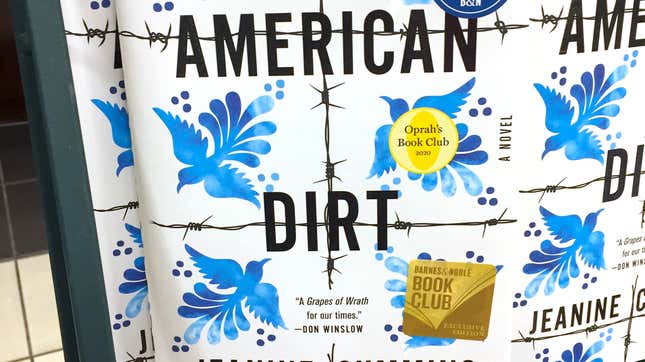Sandra Cisneros Still Thinks American Dirt Is a Good Book
Latest

It feels like years have gone by since Jeanine Cummins’s novel American Dirt was unleashed onto the book world. In reality, it’s been nine days. In those nine days, readers and writers have decried the book’s racist narrative, Oprah has added it to her book club, and Cummins has canceled her book tour, citing unnamed “safety concerns.” Enter: NPR’s Latino USA podcast, in which host Maria Hinojosa interviewed Myriam Gurba, Sandra Cisneros, Luis Alberto Urrea, and Jeanine Cummins to bring into a view all the feuding sides of the great literary battle of our time—our time being this unending horrible month of January.
Author Sandra Cisneros, who wrote a glowing blurb for American Dirt, voiced her continued support of the novel, arguing that it was “believable” and Cummins’ story could access a “different kind of audience,” one that would usually be skeptical about reading a book by an “author with a Latino last name.” When Myriam Gurba—who wrote what is in my opinion the definitive review of American Dirt—argued that the book is a several-hundred-page collection of negative stereotypes of Mexicans and Mexican culture, Cisneros responded that she doesn’t “understand the ‘stereotypical’ complaint.”
Gurba referred to an early scene in the book where a wealthy, sophisticated cartel head tries to woo the main character by bringing her conchas, a Mexican sweet bread, an action Gurba said was equivalent to a man trying to “sweep an American woman off her feet by bringing her doughnuts.” Cisneros said she felt that that Gurba’s comment about the conchas was merely “splitting hairs.” Cisneros encouraged everyone to read the book and should they find that they don’t like it, “put it down and do some serious introspection about why you really don’t like it . . . find out what you’re really upset about.” (While I can’t speak for every single Latinx person that has read this book, I’d argue that most are upset about how the book was presented to the public, and don’t need to embark on an internal journey to figure that out.) Cummins and Flatiron Books posited this story as seeking to “humanize” the mass of “brown faces” gathering at the southern border. (Gurba disagreed with this sentiment, noting that “there are no humans” in American Dirt, “just brown paper dolls.”)
-

-

-

-

-

-

-

-

-

-

-

-

-

-

-

-

-

-

-

-

-

-

-

-

-

-

-

-

-

-

-

-

-

-

-

-

-

-

-

-








































